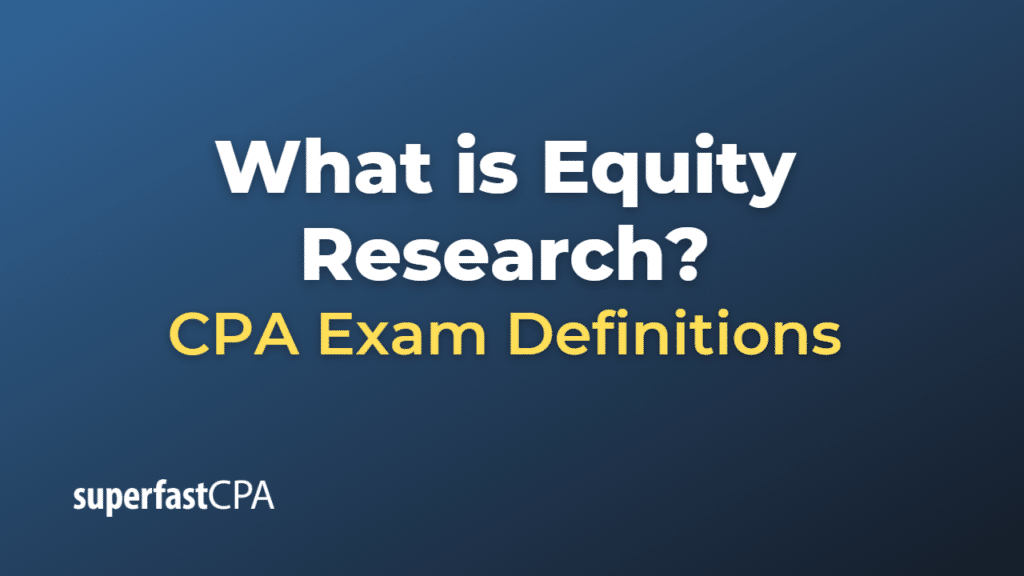Equity Research
Equity research is a field within the finance industry that involves analyzing companies’ financials, exploring market trends, and providing recommendations about buying, selling, or holding a particular stock.
Equity research analysts aim to forecast companies’ future earnings and suggest potential actions investors should take. They use a range of tools and methods to do this, including:
- Financial analysis: Equity research analysts study financial statements, ratios, and other financial metrics to understand the company’s profitability, growth, and financial health.
- Industry analysis: They also look at the state of the industry in which the company operates, its competitive dynamics, market size, growth potential, and trends.
- Valuation: They use different valuation models to determine the intrinsic value of a company’s shares and compare it with the current market price to identify if the company is overvalued or undervalued.
The output of an equity research analyst is typically a research report. These reports, often released periodically, contain an overview of the business, financial analysis, industry analysis, valuation, and a recommendation (buy, hold, sell).
Equity research is important because it provides information to help investors make informed decisions. The reports produced by equity research analysts are used by various market participants including individual investors, institutional investors, and portfolio managers.
Example of Equity Research
Imagine an equity research analyst, Jane, who works for a large investment bank. She is tasked with covering the technology sector. One of the companies she is responsible for is TechCorp, a major player in the tech industry.
Jane starts her analysis by studying TechCorp’s financial statements. She examines its income statement, balance sheet, and cash flow statement, noting key metrics such as revenue growth, profit margins, return on equity, debt levels, and cash flow generation.
Next, she turns her attention to the tech industry. She analyzes the overall market size and growth, the competitive dynamics, key trends, and threats. She notes that TechCorp has a strong position but faces increasing competition from emerging startups.
Jane then proceeds to the valuation stage. She uses a few different methods to estimate the intrinsic value of TechCorp’s stock, including discounted cash flow (DCF) analysis and comparable company analysis. From her DCF model, she estimates that TechCorp’s shares are worth $100 each.
However, TechCorp’s shares are currently trading at $120 in the market. Based on her analysis and valuation, Jane concludes that TechCorp’s stock is overvalued. She decides to issue a “sell” recommendation for TechCorp’s stock in her research report, as she believes the market price exceeds her estimate of the company’s intrinsic value.
This report is then disseminated to the investment bank’s clients, who can use the information to make informed investment decisions regarding TechCorp’s stock.
Please note that this is a simplified example. In reality, equity research involves a more complex and nuanced analysis, and recommendations can be influenced by various factors.













